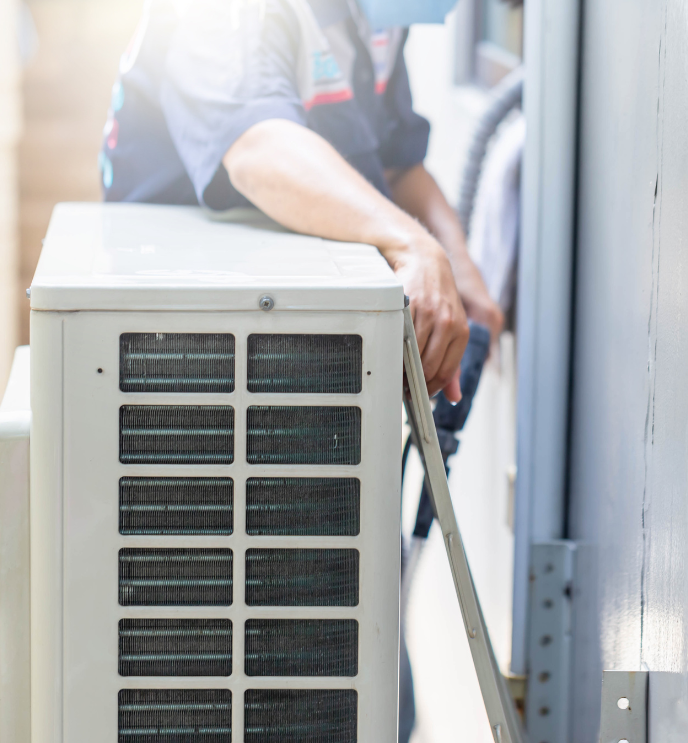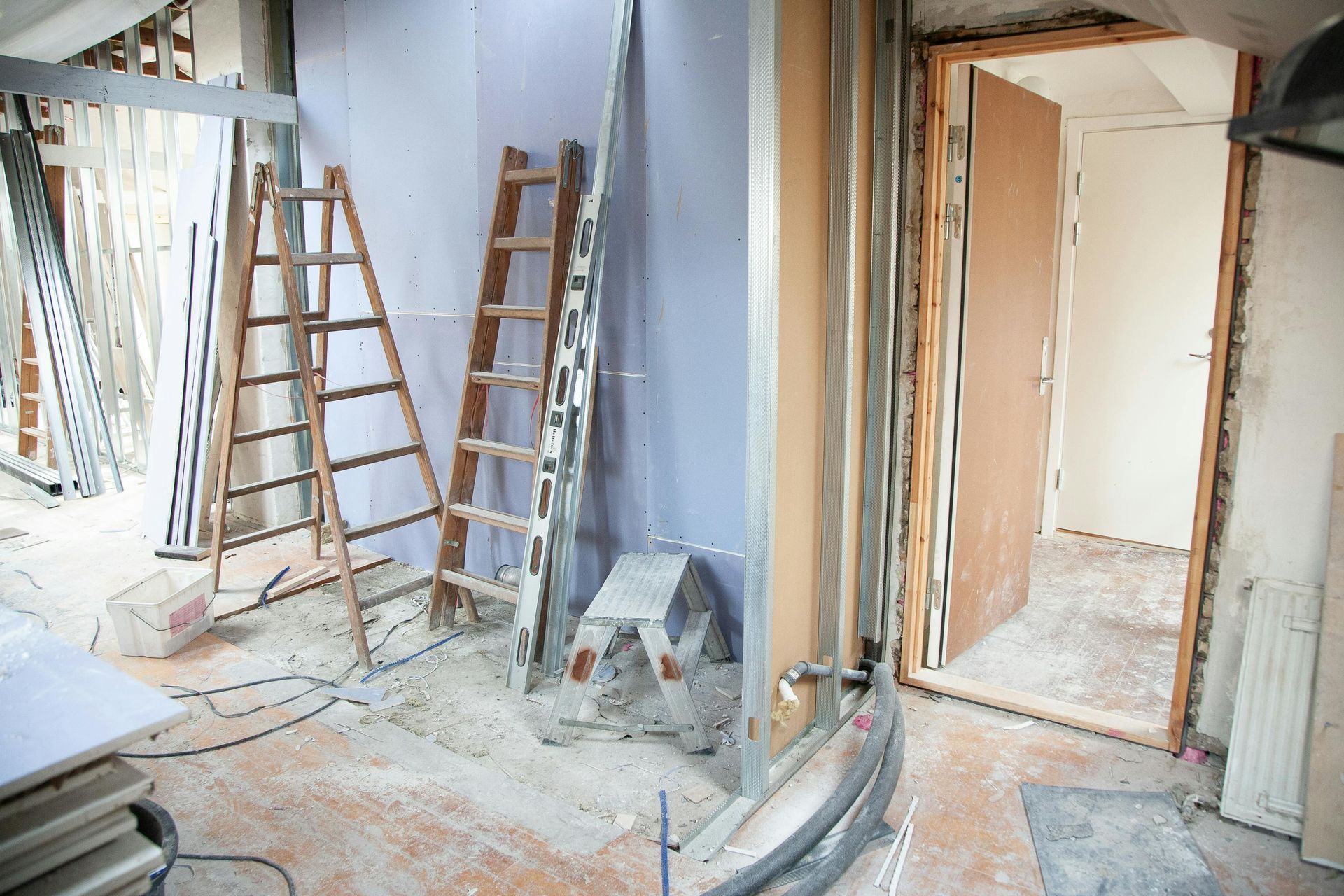Types of Contractors We Serve
Jonathan Behr
Owner of Contractor Insurance Pros by Behr Insurance Services
Index
Contact Us
Phone
Location
Simi Valley, CA 93065
The Woodlands, TX 77382
Katy, TX 77494
In the world of industrial heating, ventilation, and air conditioning (HVAC), technicians play a crucial role in maintaining the comfort and safety of various environments. However, the nature of this work can expose them to numerous risks, making it essential for HVAC technicians to secure appropriate
insurance coverage. This article delves into the importance of insurance for industrial HVAC technicians, the types of coverage available, and how to choose the right policy.
The Importance of Insurance for HVAC Technicians
Insurance serves as a safety net for HVAC technicians, protecting them from potential financial losses due to accidents, equipment failures, or liability claims. Given the complexities involved in industrial HVAC systems, having the right insurance is not just a legal requirement but also a vital component of a technician's professional toolkit.
Protection Against Liability Claims
One of the primary reasons HVAC technicians need insurance is to protect themselves against liability claims. In the course of their work, technicians may inadvertently cause damage to property or injuries to individuals. Without insurance, these claims can lead to significant financial burdens, potentially jeopardizing the technician's livelihood.
Liability insurance covers legal fees, settlements, and judgments that may arise from such claims. This coverage not only safeguards the technician's finances but also enhances their credibility with clients, who often prefer working with insured professionals. Furthermore, having liability insurance can open doors to larger contracts, as many businesses require proof of insurance before engaging in service agreements, thereby expanding the technician's potential client base.
Coverage for Equipment and Tools
HVAC technicians rely heavily on specialized tools and equipment to perform their jobs effectively. However, tools can be lost, stolen, or damaged, leading to costly replacements. equipment insurance provides coverage for these tools, ensuring that technicians can quickly replace or repair them without incurring significant out-of-pocket expenses.
Moreover, equipment insurance often covers the costs associated with equipment breakdowns, which can disrupt work schedules and lead to lost income. This type of coverage is essential for maintaining operational efficiency in a competitive market. In addition to protecting physical tools, some policies may also cover software and diagnostic systems that are integral to modern HVAC work, ensuring that technicians are equipped with the latest technology to meet client needs efficiently.
Workers’ Compensation Insurance
In the industrial HVAC sector, technicians often face hazardous working conditions. From working at heights to dealing with high-voltage systems, the risk of workplace injuries is ever-present. Workers' compensation insurance is crucial for protecting technicians in case of accidents that lead to injuries or illnesses.
This insurance provides medical benefits and wage replacement for employees who are injured on the job, ensuring they receive the necessary care without financial strain. Additionally, it protects employers from lawsuits related to workplace injuries, creating a safer work environment for everyone involved. Beyond the immediate financial protection, having workers' compensation insurance can also foster a culture of safety within the workplace, encouraging technicians to adhere to safety protocols and reducing the likelihood of accidents occurring in the first place. This proactive approach not only benefits the technicians but also enhances the overall reputation of the HVAC business in the eyes of clients and regulatory bodies.

Types of Insurance Coverage for HVAC Technicians
Understanding the various types of insurance coverage available is essential for HVAC technicians. Each type of insurance serves a specific purpose and can be tailored to meet individual needs. Here are some common types of insurance that HVAC technicians should consider:
General Liability Insurance
General liability insurance is fundamental for any HVAC technician. It covers third-party claims for bodily injury, property damage, and personal injury. For instance, if a technician accidentally damages a client's property while performing repairs, general liability insurance would cover the costs associated with the damage.
This type of insurance not only protects technicians financially but also provides peace of mind, allowing them to focus on their work without the constant worry of potential legal issues. Additionally, many clients may require proof of general liability insurance before hiring a technician, making it a crucial component of professionalism in the HVAC industry. Having this coverage can enhance a technician's reputation and instill confidence in clients, leading to more business opportunities.
Professional Liability Insurance
Professional liability insurance, also known as errors and omissions insurance, is designed to protect technicians from claims related to negligence, mistakes, or failure to deliver services as promised. In the HVAC industry, even minor oversights can lead to significant problems, such as system failures or safety hazards.
This insurance is particularly important for technicians who provide consulting or design services, as it covers legal costs and damages resulting from claims of inadequate work or professional mistakes. Furthermore, as HVAC systems become increasingly complex with advancements in technology, the risk of errors may rise. Therefore, having professional liability insurance not only safeguards technicians against financial loss but also encourages them to stay updated with industry standards and practices, ultimately improving the quality of service they provide.
Commercial Auto Insurance
For HVAC technicians who use vehicles for work purposes, commercial auto insurance is a necessity. This coverage protects against accidents that occur while driving for business, including vehicle damage, bodily injury, and property damage.
Personal auto insurance may not cover incidents that happen while using a vehicle for work, making commercial auto insurance essential for those who rely on their vehicles to transport tools and equipment to job sites. Additionally, commercial auto insurance can include coverage for specialized equipment that may be stored in the vehicle, ensuring that technicians are protected against theft or damage while on the road. As HVAC technicians often travel to various locations, having this insurance not only mitigates financial risks but also allows them to operate their business with greater confidence and efficiency, knowing they are covered in the event of an accident.
Choosing the Right Insurance Policy
Selecting the right insurance policy can be a daunting task, especially with the myriad of options available. However, by considering a few key factors, HVAC technicians can make informed decisions that best suit their needs.
Assessing Individual Needs
The first step in choosing the right insurance policy is to assess individual needs. Technicians should consider their specific work environment, the types of services they provide, and the potential risks associated with their work. For instance, a technician working primarily in commercial settings may require different coverage than one focusing on residential systems.
By understanding their unique risks, technicians can identify the types of coverage that will provide the most protection and peace of mind. It’s also beneficial to evaluate the tools and equipment they use, as these can represent significant investments. Policies that include coverage for equipment breakdown or theft can be invaluable, especially for technicians who rely heavily on specialized tools to perform their jobs efficiently. Furthermore, considering the geographical area in which they operate can also influence the type of coverage needed, as different regions may have varying risks related to weather, local regulations, and market demands.
Comparing Policies and Providers
Once technicians have a clear understanding of their insurance needs, the next step is to compare different policies and providers. It’s essential to research various insurance companies, looking for those that specialize in coverage for HVAC professionals. Reading customer reviews and seeking recommendations can provide valuable insights into the reliability and customer service of potential providers.
Additionally, technicians should obtain quotes from multiple insurers to compare coverage options and premiums. This process can help identify the best value for the coverage needed. It's also important to inquire about discounts that may be available, such as those for bundling multiple policies or for having a clean claims history. Some insurers may offer loyalty discounts for long-term customers, which can lead to significant savings over time. Engaging with an insurance broker who understands the HVAC industry can also streamline this process, as they can provide tailored advice and help navigate the complexities of different policies.
Understanding Policy Terms and Conditions
Before committing to a policy, it’s crucial to thoroughly read and understand the terms and conditions. Technicians should pay attention to coverage limits, exclusions, deductibles, and any additional endorsements that may be necessary for their specific situation.
Clarifying any uncertainties with the insurance provider can prevent misunderstandings and ensure that technicians are adequately protected in the event of a claim. It’s also wise to periodically review the policy as business needs evolve. For example, as technicians expand their services or invest in new equipment, they may need to adjust their coverage accordingly. Regularly revisiting the policy ensures that it remains aligned with their current operations and adequately addresses any new risks that may arise. Additionally, being aware of the claims process and what documentation is required can facilitate smoother interactions with the insurance provider should a claim need to be filed, ultimately leading to quicker resolutions and less stress during challenging times.
The Cost of HVAC Technician Insurance
The cost of insurance for HVAC technicians can vary significantly based on several factors, including the type of coverage, the technician's experience, and the size of their business. Understanding these factors can help technicians budget for their insurance needs effectively.
Factors Influencing Insurance Premiums
Several factors can influence the premiums that HVAC technicians pay for insurance. These include:
- Experience: More experienced technicians may pay lower premiums due to a proven track record of safety and reliability.
- Business Size: Larger businesses may face higher premiums due to increased risk exposure and the number of employees covered.
- Claims History: A history of frequent claims can lead to higher premiums, while a clean record may result in discounts.
- Location: The geographical area in which a technician operates can impact premiums, as certain regions may have higher risks associated with theft or natural disasters.
Estimating Insurance Costs
Estimating insurance costs can be challenging, but technicians can use industry averages as a starting point. On average, HVAC technicians may pay anywhere from $500 to $2,500 annually for general liability insurance, depending on the factors mentioned above.
Professional liability insurance and workers' compensation insurance may add additional costs, so it’s essential to factor these into the overall budget. Obtaining quotes from multiple providers can help technicians get a clearer picture of their potential insurance expenses.
Additionally, technicians should consider the specific needs of their business when estimating costs. For instance, those who work with high-value equipment or in high-risk environments may need more comprehensive coverage, which could increase their premiums. It’s also worth noting that as the HVAC industry evolves, new risks may emerge, necessitating adjustments in coverage and costs over time. Staying informed about industry trends and potential liabilities can aid technicians in making well-informed insurance decisions.
Finding Discounts and Savings
Many insurance providers offer discounts that HVAC technicians can take advantage of to reduce their premiums. These discounts may include:
- Bundling Policies: Purchasing multiple types of insurance from the same provider can often lead to significant savings.
- Safety Training: Completing safety training programs or certifications may qualify technicians for lower premiums.
- Membership Associations: Joining professional associations related to HVAC work may provide access to group insurance rates.
Furthermore, technicians should regularly review their insurance policies to ensure they are not overpaying for coverage they no longer need. As businesses grow and evolve, certain coverages may become redundant or less relevant. By conducting annual policy reviews and discussing options with their insurance agents, technicians can identify potential savings and make necessary adjustments to their coverage, ensuring they are adequately protected without incurring unnecessary costs. Additionally, some insurers offer loyalty discounts for long-term customers, which can further contribute to cost savings over time.

The Future of HVAC Technician Insurance
As the HVAC industry continues to evolve, so too will the insurance needs of technicians. Emerging technologies, changing regulations, and the increasing focus on sustainability are likely to shape the future landscape of HVAC technician insurance.
Impact of Technology
Advancements in technology, such as smart HVAC systems and automation, are changing the way technicians work. As these technologies become more prevalent, insurance providers may need to adapt their coverage options to address new risks and challenges associated with these systems.
Additionally, the rise of telematics and data analytics may lead to more personalized insurance policies, allowing technicians to pay premiums based on their actual risk exposure rather than broad industry averages. This could encourage technicians to adopt safer practices and invest in better training, as lower premiums would be an incentive for maintaining high standards of safety and efficiency.
Moreover, the integration of Internet of Things (IoT) devices in HVAC systems means that technicians will be increasingly responsible for managing and troubleshooting complex interconnected systems. This complexity could necessitate additional training and certification, which in turn may require updated insurance policies that cover the unique liabilities associated with these advanced technologies.
Regulatory Changes
Changes in regulations and safety standards can also impact insurance requirements for HVAC technicians. As governments implement stricter regulations regarding energy efficiency and environmental impact, technicians may need to obtain additional certifications or coverage to remain compliant.
Staying informed about these changes is essential for technicians to ensure they have the necessary insurance coverage to operate legally and effectively. Furthermore, as the industry shifts toward more stringent compliance measures, insurance providers may begin to offer advisory services to help technicians navigate the complexities of regulatory requirements, ensuring they are not only insured but also well-informed about best practices and compliance strategies.
In addition, as more states and municipalities adopt local regulations that go beyond federal standards, HVAC technicians will need to be proactive in understanding the nuances of these laws. This could lead to a greater demand for specialized insurance products that cater to the specific needs of technicians operating in diverse regulatory environments.
Focus on Sustainability
With an increasing emphasis on sustainability and eco-friendly practices, HVAC technicians may find themselves needing insurance that covers green technologies and practices. This shift may lead to the development of specialized insurance products that cater to technicians who focus on energy-efficient systems and environmentally friendly solutions.
As the market for sustainable HVAC solutions grows, technicians who invest in green technologies may also benefit from lower insurance premiums, as their work contributes to reduced environmental risks. Insurers might develop unique policies that not only protect these technicians but also promote their commitment to sustainability, potentially offering discounts for those who use eco-friendly materials or practices.
Furthermore, as customers become more environmentally conscious, the demand for technicians skilled in sustainable practices will likely increase. This trend could create new opportunities for technicians to differentiate themselves in the market, leading to a more competitive landscape where insurance products are tailored to highlight and support sustainable practices in HVAC work.
Conclusion
Insurance is a vital component of an HVAC technician's career, providing essential protection against various risks associated with the job. By understanding the importance of different types of coverage, assessing individual needs, and choosing the right policies, technicians can safeguard their livelihoods and enhance their professional reputation.
As the HVAC industry continues to evolve, staying informed about insurance options and emerging trends will be crucial for technicians looking to thrive in a competitive marketplace. Investing in the right insurance not only protects technicians financially but also enables them to focus on delivering quality service to their clients with confidence.
Areas we serve









